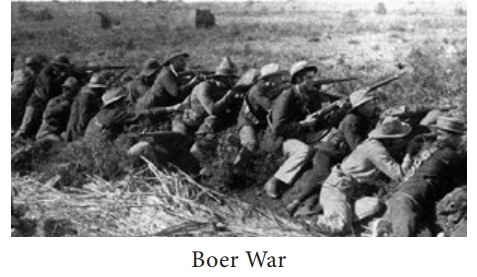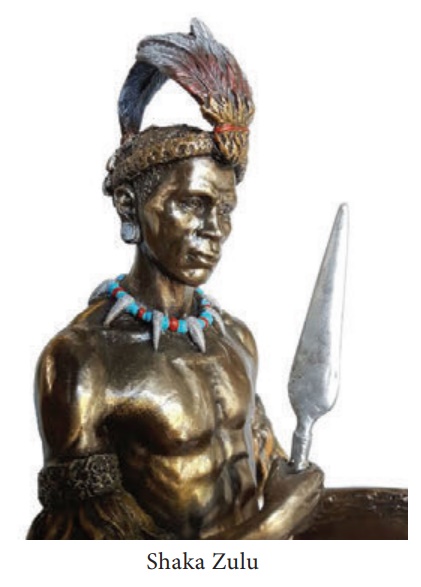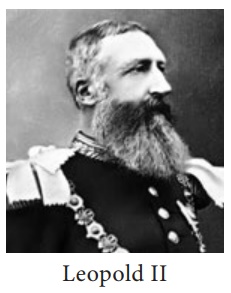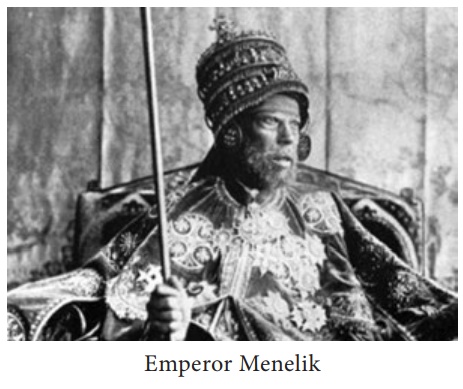Chapter: 9th Social Science : History: Colonialism in Asia and Africa
Colonisation of Africa
Colonisation of Africa
Until the last quarter of nineteenth century, Africa south of the
Sahara (Sub- Saharan Africa) was almost unknown to the outside world. The
interior of Africa was unexplored. After 1875, European penetration and
colonisation began on a large scale. The Berlin Colonial Conference of 1884-85
resolved to divide Africa into spheres of influence of the various European
powers. European colonisation of Africa was thus accomplished smoothly, without
any outbreak of war amongst major European powers. The invasion, occupation,
colonisation and annexation of African territories by European powers between
1881 and 1914, the era of Imperialism, is called the Scramble for Africa
or the Partition of Africa.
The Berlin Conference of 1884–85, also known as the Congo
Conference or West Africa Conference, met to decide all issues connected with
the Congo River basin in Central Africa. The conference proposed by Portugal to
discuss its claim to control the Congo river basin was rejected. The general
act of the Conference of Berlin declared the Congo River basin to be neutral
and guaranteed freedom for trade and shipping for all states in the basin.
South Africa
In South Africa the British possessed Natal, Cape Colony, while
the Dutch (locally known as the Boers) held the states of the Transvaal and
Orange Free State. In 1886 the discovery of gold in the Transvaal led to a
large number of British miners settling in and around Johannesburg. The Boers
feared and hated the miners whom they called Uitlanders (foreigners). In 1890,
Cecil Rhodes, the Prime Minister of Cape Colony, encouraged British expansion
to the north of the Transvaal. This worsened the relations between the Boers
and the British. Denied of their political rights the British miners revolted.
This led to the Boer War which lasted three years (1899-1902). In the end the
Boer army was defeated and Pretoria was occupied. The Boers suffered greatly in
the war. Their farms and crops were destroyed and Boer women and children were
confined to internment camps. The shortage of food, beds, medical and sanitary
facilities caused the death of 26,000 people. The British annexed the two Boer
states but promised self government in due course. Boer states were given full
responsible government in 1907. After discussions over the years the four
states finally decided to form a union and South Africa as a state was born in
1909.

The Zulu tribe was known for its strong fighting spirit,
represented by renowned warriors like Shaka Zulu who played a prominent role in
building the largest Zulu nation in south-eastern Africa. British troops
invaded Zulu territory and divided it into thirteen chiefdoms. The Zulus never
regained their independence and had to fight against deeply entrenched racism
in South Africa for about a century.

Rhodesia
The British South African Company founded in 1889 conducted an expedition with 600 men- each of them were promised a 3,000 acre farm. The African king was tricked into believing that all that the Europeans wanted was gold. But they had come with a definite plan of colonising the Bechuanaland. During the next ten years African opposition was crushed. White immigrants were provided with farm lands and railways, and a telegraph system developed. The colony came to be called Rhodesia, after Cecil Rhodes.
West Africa
The coastal states of Gold Coast became a British colony in 1854.
Nigeria was used for slave trading posts on the coast. In 1886 the Royal Niger
Company was formed which was taken over by the British government in 1900.
French West: Senegal had been a French base in West Africa. Her later
possessions of Guinea, Ivory Coast and Dahomey were linked up with the whole
area of south of Sahara.
Congo: Leopold II, king of Belgium, showed interest in Congo and so the Berlin Conference agreed to the rule of Leopold in Congo Free State.

This State was given amonopoly of the trade in ivory and rubber, the
two most valuable products of the Congo. These products were collected with
harshness. Africans were subjected to forced labour. Each village was given a
quota, and if quotas were not fulfilled, they were flogged and mutilated. The
public outcry over the economic exploitation of Africans persuaded the Belgian
Government to intervene. Leopold was forced to relinquish his “sovereign right”
and in 1908 sovereignty over the Congo passed from Leopold to Belgium.
East Africa
British: In 1886 the possessions of the Sultan of Zanzibar were divided
into British and German spheres of influence. For the first few years, the
British area was administered by the British East India Company, but in 1895
the British government assumed authority and formed the East African
Protectorate, which included Kenya, Uganda and Zanzibar. A large part of Uganda
was made up of Buganda, a kingdom ruled by Kabaka. Dubbing the ruler as weak
and inefficient, the British established their indirect rule as in the princely
states of British India.
Germans: The Germans established their rule in what became German East
Africa. Like King Leopold in the Congo, the Africans here were economically
exploited, leading to a number of rebellions. The most serious was the
Maji-Maji rebellion (1905-1907).
Portuguese Angola and
Mozambique
The Portuguese had used these two colonies on the west and east
coasts of southern Africa, along with Portuguese Guinea since 16th century.
Before the mid-nineteenth century, there was no expansion of the settlement.
After 1870, the Portuguese arrived in great numbers and settled there. They
organised the administration and kept the Africans in conditions of
slavery.
African Rule in Liberia and Ethiopia
Only two countries managed to evade European colonialism – Liberia
and Ethiopia. Liberia was formed in the early 19th century as a home for
African Blacks repatriated from America. Ethiopia, with its traditional polity,
was ruled by the Emperor Menelik. Under him, Ethiopia defeated Italy at the
battle of Adowa in 1896. After this, their independence could not be curtailed
by any European power. Menelik modernized his country by the introduction of
railways and electricity.

Related Topics